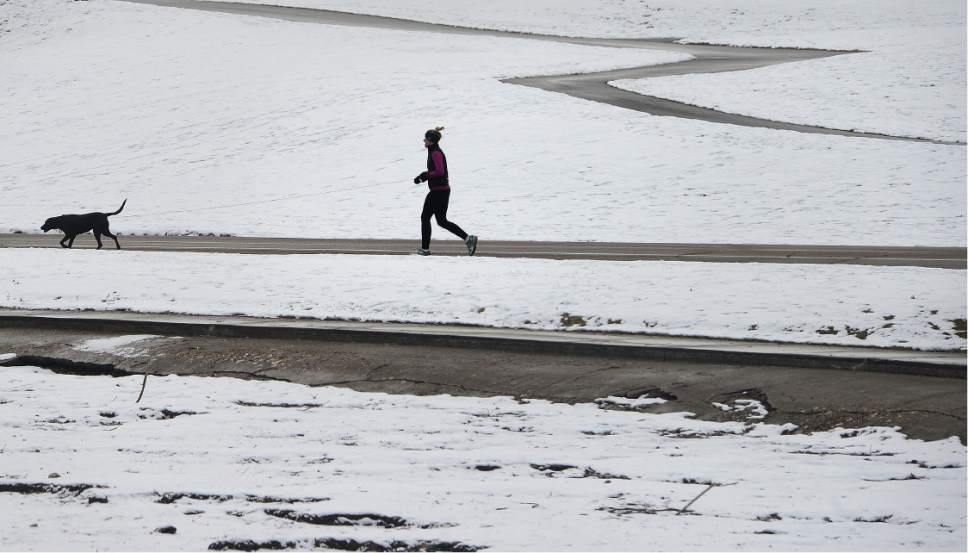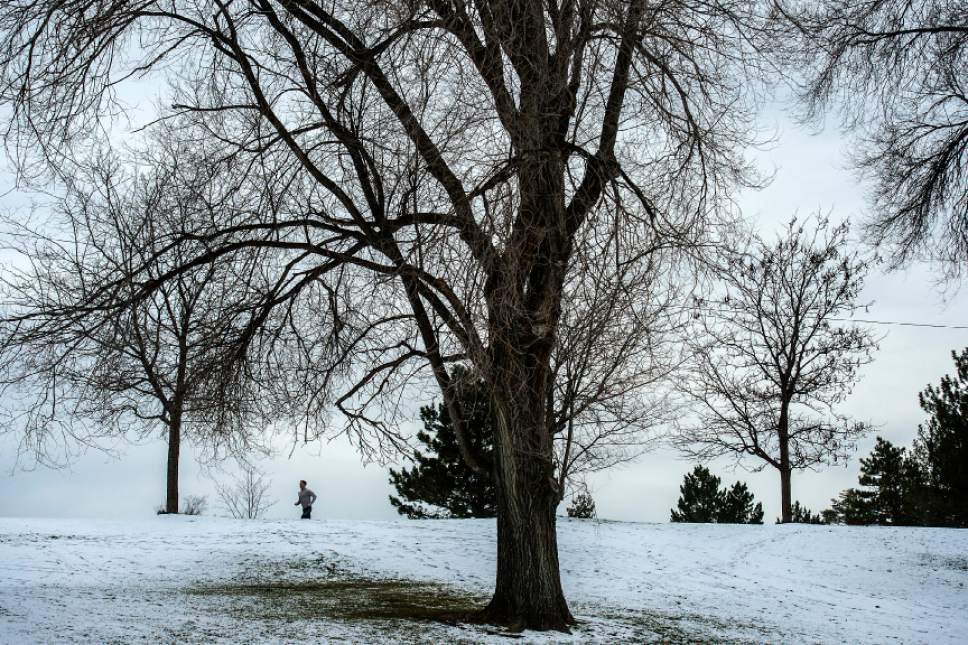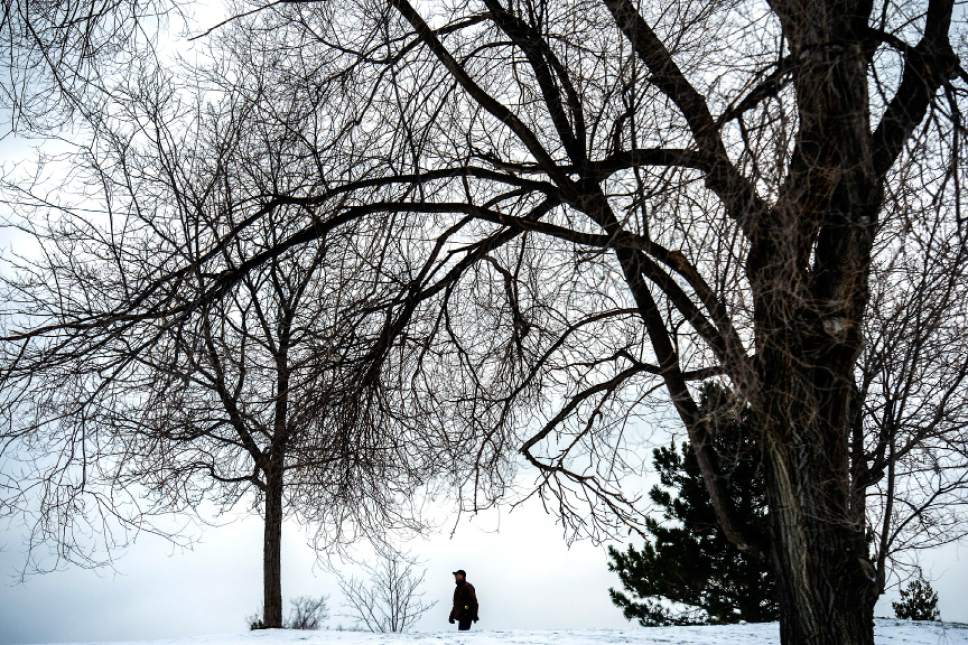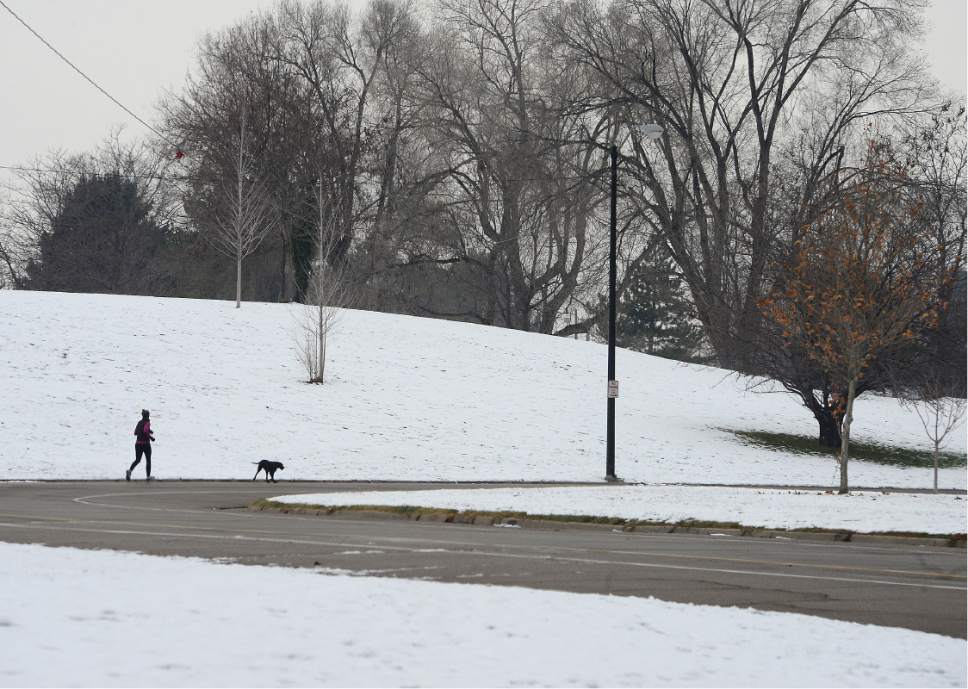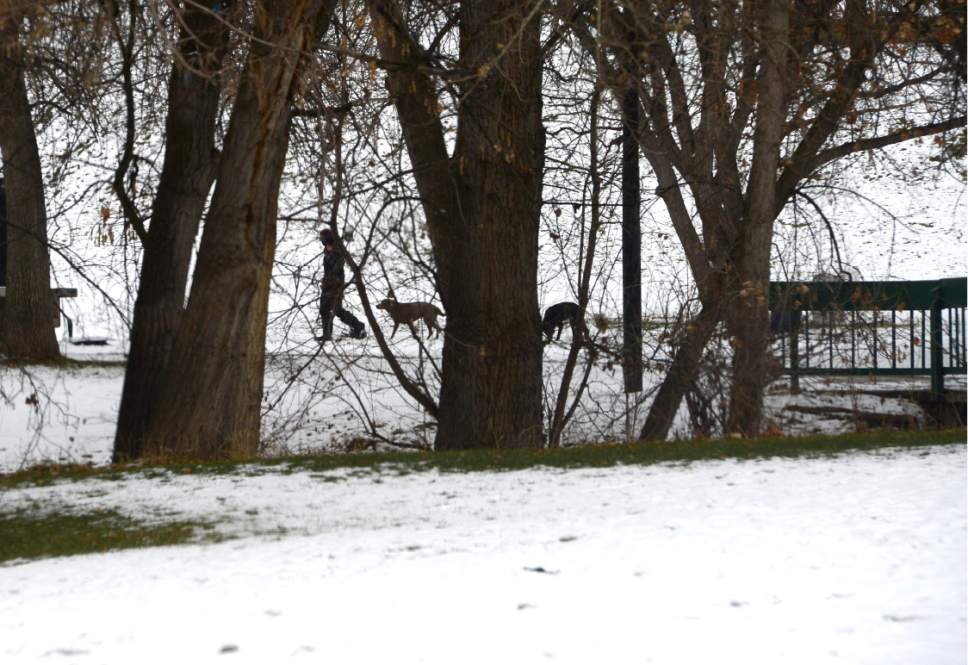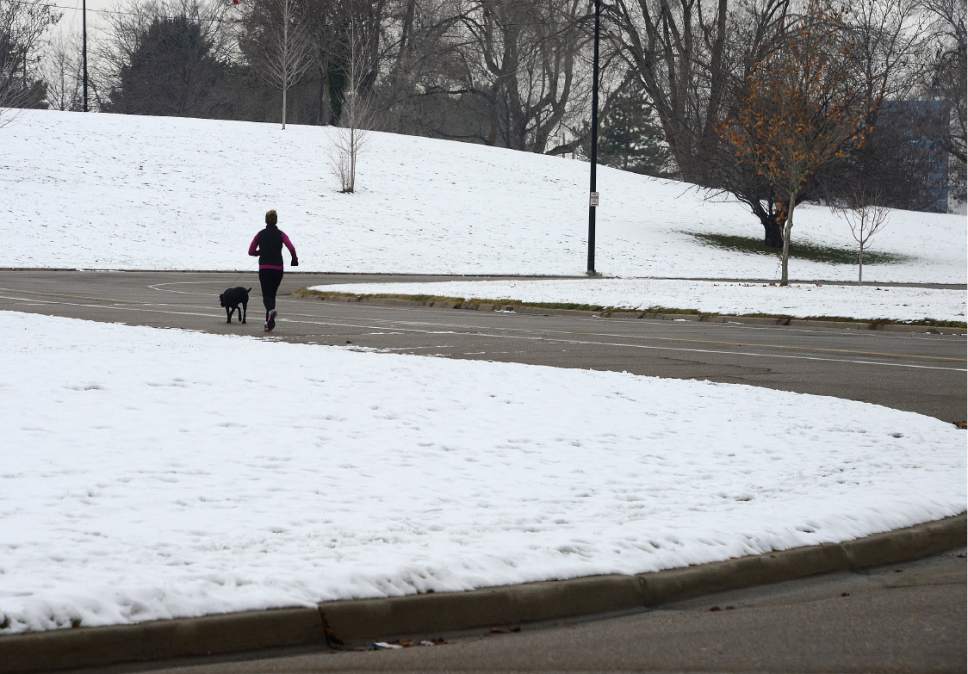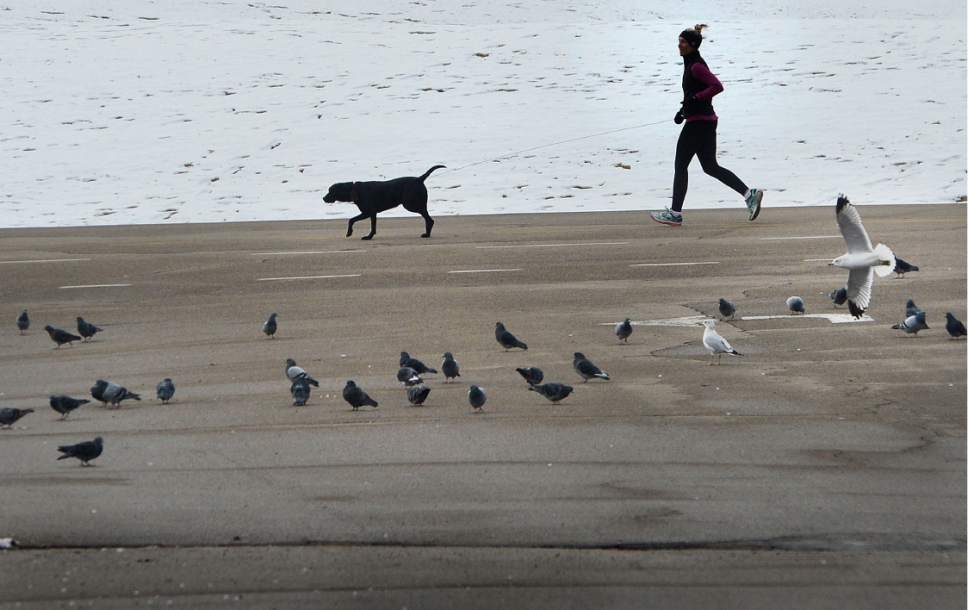This is an archived article that was published on sltrib.com in 2016, and information in the article may be outdated. It is provided only for personal research purposes and may not be reprinted.
Feeling chilly? You might be inclined to call humbug on climate change, according to a new study from a Utah State University researcher.
The study, published this week in the Proceedings of the National Academy of Sciences, found that local weather conditions play a role in individuals' beliefs about climate change. In areas that have experienced more record-breaking heat, locals are more likely to believe in human-caused climate change. But in areas where temperatures have dipped into unprecedented lows, residents may be inclined to conclude that climate change is a hoax.
"As we would expect with many other things, people tend to learn from experience," said Peter Howe, an assistant professor of geography at USU and one of the co-authors on the study. "If local weather tends to be more cold than hot, then I wouldn't blame them for making that assumption and connecting it to their belief about global warming."
Two facts can make life complicated for climate scientists trying to communicate their work to the public, Howe said. Though easy to describe as a global increase in temperatures, climate change is more complex. Global temperatures are warming on average, but climate change also makes local weather more variable and dramatic.
And seasonal weather patterns still exist, as do the whims of nature that have long kept meteorologists on their toes. So some places are experiencing record-breaking cold in the midst of the global-warming trend, Howe said.
Additionally, he said, people tend to have short memories, so short-term weather patterns can seem to invalidate theories about global warming, even if temperatures overall are still trending upward.
According to the study, individuals' beliefs about climate change appear to be most influenced by recent weather trends. If a given area set even a few low temperature records in the past five years or so, the residents were more likely to express skepticism about climate change.
This appears to hold true in Utah, Howe said, where 60 percent of residents say they believe climate change is happening.
"That's less than the country as a whole, but still a solid majority," he said.
And given the number of heat records Utah has set in recent years, Howe said he expects to see the number of Utahns who believe in climate change continue to increase.
According to the Actuaries Climate Index, the Southwest region of the U.S., including Utah, has seen a steady trend of above-normal temperatures since spring 2013. The index, which was also released earlier this month, quantifies temperature deviations, extreme weather and changes in sea level over time.


